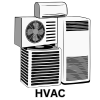The purpose of a muffler (also called a silencer) is to reduce the noise produced by the engine’s exhaust gases as they exit the vehicle.
In this article :
What is a muffler?
A muffler is a device attached to a vehicle’s exhaust system that reduces engine noise.
It works by channeling exhaust gases through a series of chambers or perforated tubes.
Besides noise reduction, it can also help control emissions and improve engine efficiency.
Main Purpose of a Muffler:
1. Noise Reduction
- The primary function is to quiet the loud sounds created during combustion and exhaust gas flow.
- Exhaust gases exit the engine at high pressure and velocity, producing sharp sound waves.
- The muffler dampens these sound waves to keep the vehicle quieter.
2. Backpressure Management
- Mufflers are designed to minimize added backpressure (resistance to exhaust flow), which could reduce engine efficiency.
- Performance mufflers aim to reduce noise without hurting engine power.
3. Environmental and Legal Compliance
- Helps meet noise regulations in cities and countries.
- A noisy vehicle without a muffler may be illegal or fail inspection.
How Does a Muffler Work?
A muffler is a metal canister attached to the exhaust pipe, typically located toward the rear of the vehicle. Inside, it uses a combination of:

🔁 a. Chambers & Baffles
- Sound waves enter and bounce around inside internal chambers, interfering with each other.
- This cancels out specific sound frequencies (destructive interference).
🕳️ b. Perforated Tubes
- Some mufflers use perforated tubes to disperse sound energy across a larger area, reducing its intensity.
🧵 c. Sound-Absorbing Materials
- Advanced mufflers may use fiberglass or other insulation to absorb sound energy directly.
How to choose the best muffler?
To choose the best muffler, consider the following key factors:
- Vehicle Compatibility: Ensure the muffler fits your vehicle’s make, model, and engine type.
- Sound Preference: Decide if you want a quiet ride (chambered muffler) or a louder, performance sound (straight-through or glasspack).
- Performance Goals: Choose a performance muffler if you’re aiming for increased horsepower or better exhaust flow.
- Material Quality: Opt for stainless steel or aluminized steel for durability and resistance to rust.
- Legal Requirements: Check local noise and emissions regulations to stay compliant
Summary Table
Watch Muffler working animation video.
| Function | Description |
|---|---|
| Noise reduction | Cancels and absorbs engine/exhaust noise |
| Backpressure control | Balances flow to avoid power loss |
| Compliance | Meets legal noise limits for road use |
Symptoms of a Bad or Failing Muffler
- Loud, roaring noise from the exhaust
- Decreased fuel efficiency
- Vibrations under the car
- Rust or holes in the muffler body
Types of Muffler:
The following are the types of muffler used in automobile industry:
- Chambered Muffler.
- Turbo Muffler
- Straight-Through (Glass pack) Muffler.
- Resonator Muffler (Resonated Muffler)
- Reactive Muffler (Reflective Muffler)
FAQ Section:
What does a muffler do?
A muffler reduces the noise produced by your vehicle’s exhaust system and can also help manage backpressure for better performance.
How do I know if my muffler is bad?
Signs include loud or unusual noises, decreased fuel efficiency, rattling sounds, or visible rust and holes.
Can a bad muffler affect engine performance?
Yes, a damaged muffler can reduce engine efficiency, increase emissions, and negatively impact fuel economy.
What are the types of mufflers?
Common types include chambered, turbo, straight-through (glasspack), and performance mufflers.
Is it legal to remove a muffler?
In many places, removing a muffler is illegal due to noise and emission regulations—check local laws before modifying.
What’s the difference between a muffler and a resonator?
A muffler reduces overall exhaust noise, while a resonator modifies or cancels specific sound frequencies to shape the exhaust tone.
How long does a muffler last?
A quality muffler can last 5–7 years or longer, depending on driving conditions, material, and maintenance.
Does a performance muffler increase horsepower?
Some performance mufflers can slightly increase horsepower by improving exhaust flow, especially when paired with other mods.
How much does it cost to replace a muffler?
Replacement costs typically range from $100 to $400, depending on the vehicle and muffler type.
Can I install a muffler myself?
If you have basic mechanical skills and the right tools, DIY installation is possible—but professional installation ensures fit and performance.
Other courses:



